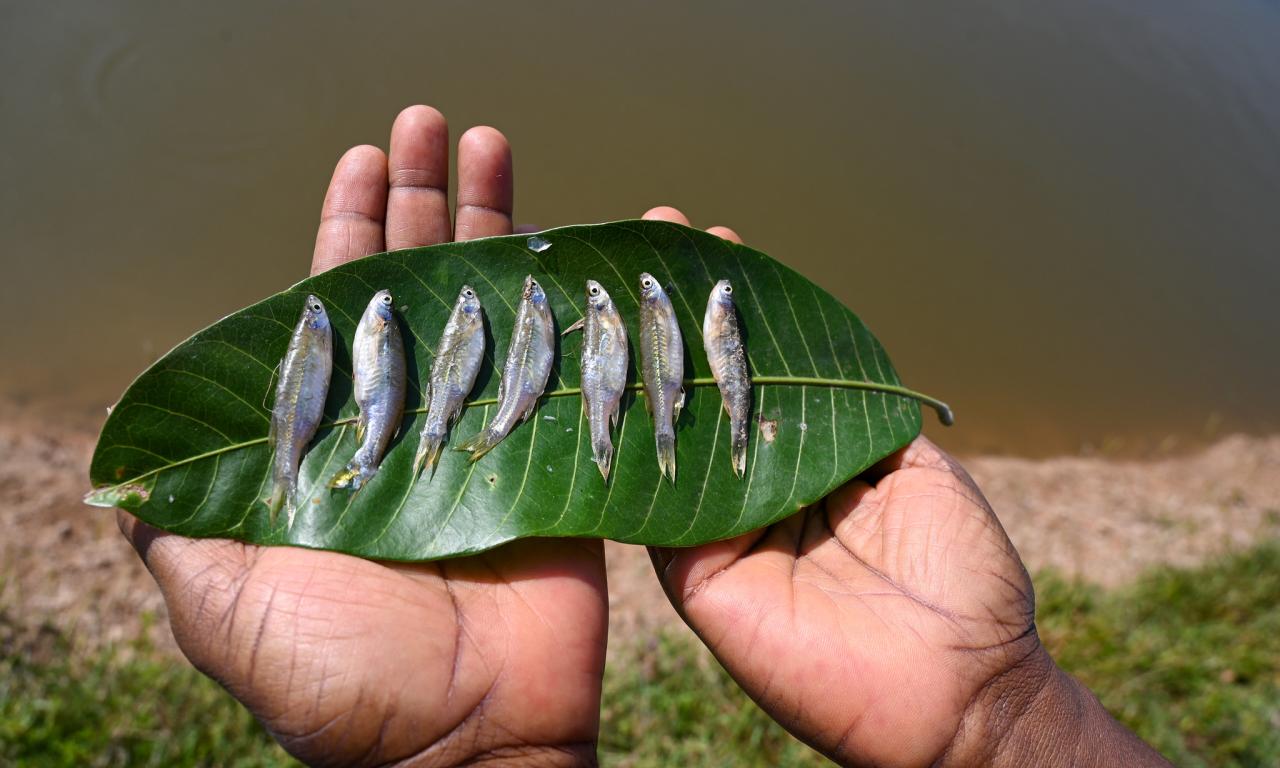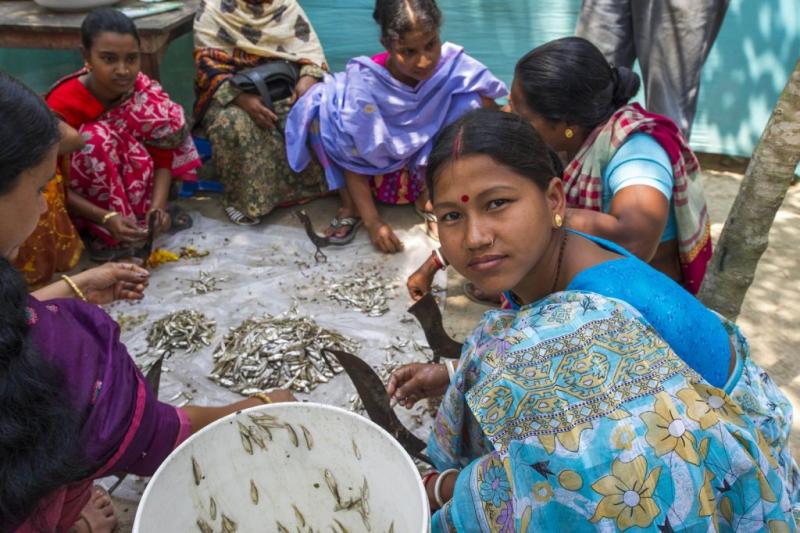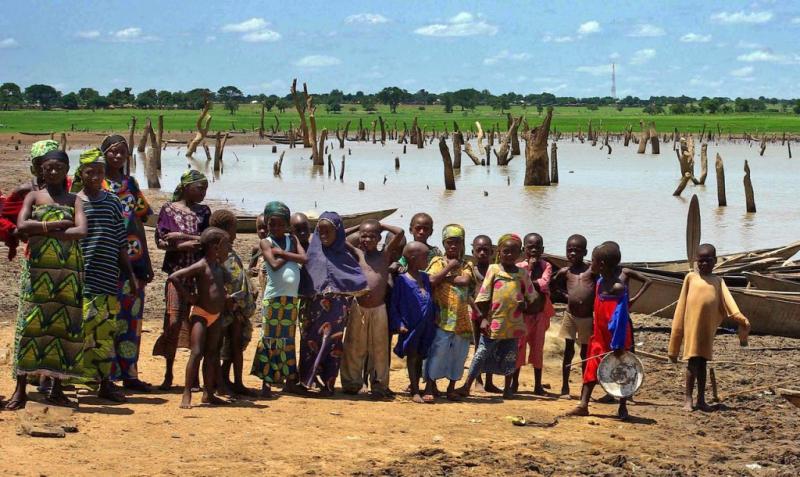
Currently, 2 billion people around the world lack access to diverse, nutritious, and safe diets that can sustain healthy, active lives. A number that is expected to increase sharply because of COVID-19. These numbers represent our unhealthy and unsustainable global food systems. Malnutrition, both undernutrition, and overnutrition constitute a public health concern in many countries. The way we produce food is harming the environment pushing beyond planetary boundaries. We need to transform our broken food system to do better for people and planet.
“The food system is failing us,” Inge Brouwer, leader of Flagship 1: Food Systems for Healthier Diets, CGIAR Research Program (CRP) on Agriculture for Nutrition and Health (A4NH), recently told nutrition researchers at a CGIAR Food Environment workshop held in Addis Ababa, Ethiopia.
Aquatic foods must be part of the effort to transform our food system. Plants, animals, and microorganisms farmed in and harvested from water are nutrient-rich, affordable, highly traded, and produced with a relatively low carbon footprint. Researchers at A4NH and WorldFish, through the CRP on Fish Agri-food Systems (FISH), are teaming up to conduct impactful research on how to leverage aquatic foods to improve food systems.
Nutrition scientists are not simply looking at diets for their nutritional value or their calorific intake but also to address nutritional deficiencies and imbalances at their source. They investigate how the food is produced and which aspects of the food system can be sustainably improved to provide a more nutritious, diverse, and safe diet.
Researchers from WorldFish and Wageningen University & Research (WUR) are working together in Bangladesh to investigate the diets of urban adolescents. The research explores their current diets and the barriers they face in consuming more healthily while asking how the role of fish and fish-based products may be maintained or leveraged to improve their diets. For example, we know that adolescents have high calcium needs – and small indigenous fish are an excellent source of calcium. Are adolescents taking advantage of this available food in Bangladesh? Or is fish in the diets being crowded out by highly processed foods? If their diets consist of highly processed foods -- putting them at risk of micronutrient deficiencies during this vulnerable period -- we want to know what food system changes could address this. Hence, we examine policies that reduce the availability of highly processed foods and increase the availability or palatability of fish and fish-based products.

In Nigeria, similar research into all aspects of the food system begins with the diets. Preliminary evidence indicates that fish -- especially catfish and crayfish -- play a large role in the diets of Nigerians, across the wealth spectrum; however, consumption of highly processed foods threaten diet quality, especially in women and children. Food system changes are needed to shift demand and production of healthier options, especially as much of Nigeria transitions to more modern food systems.
Some of our research on food systems is in the later stages, and recently scientists at WorldFish presented new findings at the annual Agriculture for Nutrition and Health (ANH) Academy meeting, with live session attendees reaching 914 people across 72 countries.
Kelvin Shikuku, a WorldFish scaling scientist working with FISH presented his findings showing consumers in Nigeria are willing to pay price premiums for food safety certified catfish. Shikuku's research indicated that incentives exist within aquaculture for safe fish. However, there were important differences in the valuation, consumers’ preferences were towards high-market value catfish, including large-sized and smoked catfish, but not small-sized catfish. His research comes at an opportune time, considering that a recent IFPRI report suggested that food quality certification is an important step as food systems transform from traditional to modern models. The findings provide useful insights for designing certification schemes for fish food safety and suggest the need to consider the heterogeneity of fish products consumed as well as aquaculture producers. Shikuku’s publication on his research findings is pending, however, his pre-specified analysis plan has been published.
WorldFish researchers also presented findings at ANH on the role of inland fisheries and fish in the diets of young children. Results show that fish is an important animal-source food in the diets of 20 percent of rural children in sub-Saharan Africa and that inland fisheries are a crucial source of these fish in many countries in Africa. These findings generated an interesting discussion and brought capture fisheries to the forefront of attendees’ minds when discussing animal-source foods. Our findings not only provide important evidence about the role of traditional food systems, but they also provide a good example of how existing data, for example, data from demographic and health surveys, can be leveraged to study the role of fish and other aquatic foods in the food environment.

Transforming food systems will not happen overnight, but greater coordination and cooperation among CGIAR centers and research programs can open many new opportunities. Researchers at WorldFish, and WUR, engaged in the CRPs on A4NH, FISH, and PIM, are working to design relevant studies that will generate evidence-based messages for policymakers, donors, and civil society. One CGIAR reforms will stimulate even closer integration between our work on fish and other aquatic foods and food systems transformation. Through such research collaboration and sharing of findings, we hope that we can influence changes in food systems that will help people, rather than fail them.
Authored by Kendra Byrd, PhD, WorldFish & Elise F. Talsma, PhD, Wageningen University & Research (WUR).
Download live session attendees reaching 914 people across 72 countries. Below